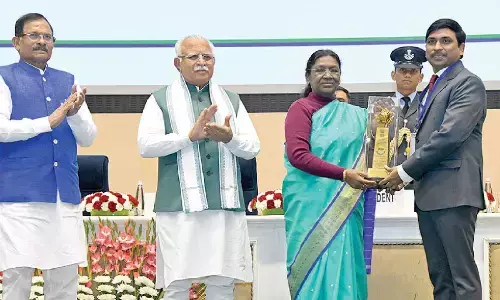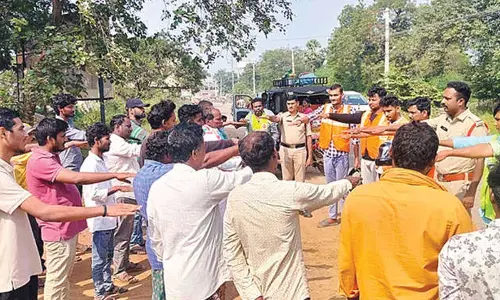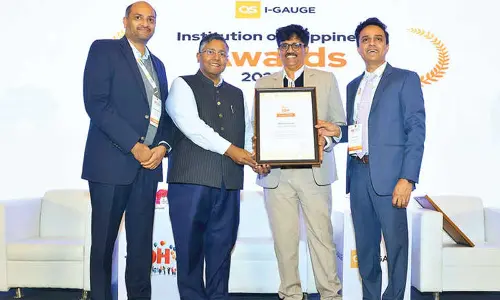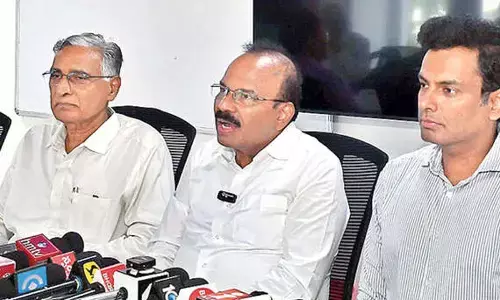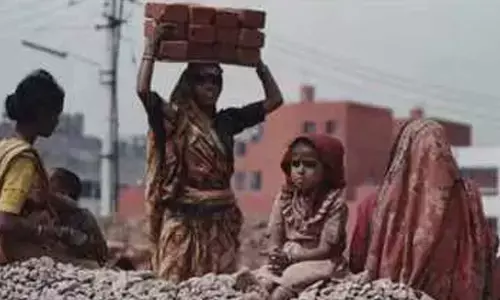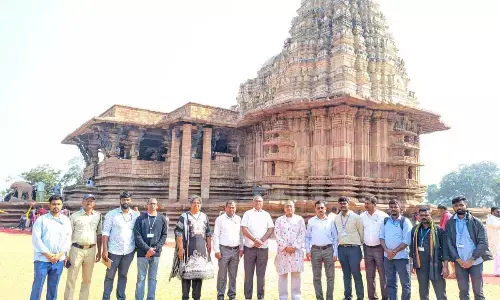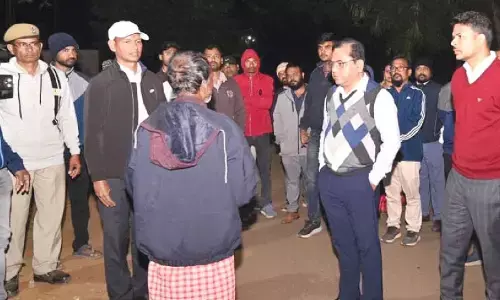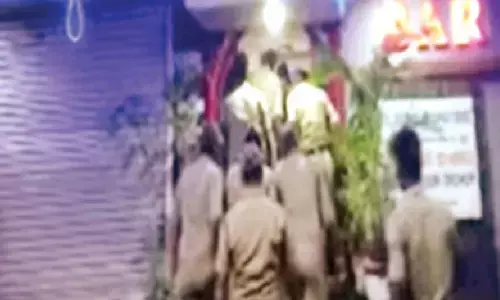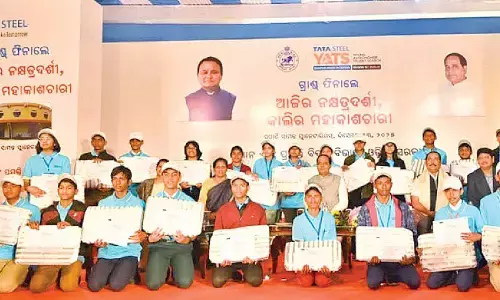Man of the moment in Pak
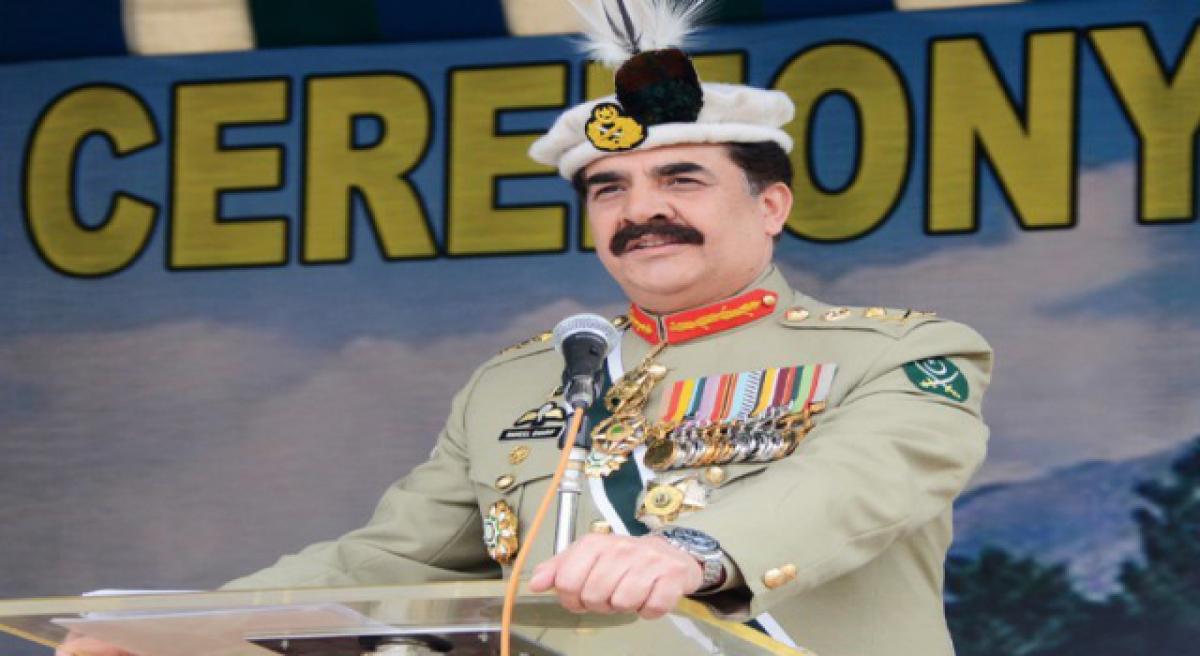
Come Sunday, August 14, Pakistan’s Independence Day, the man most viewed in awe, admiration by many Pakistanis will be not the country’s President or Prime Minister but the Chief of the Army Staff, General Raheel Sharif.
Come Sunday, August 14, Pakistan’s Independence Day, the man most viewed in awe, admiration by many Pakistanis will be not the country’s President or Prime Minister but the Chief of the Army Staff, General Raheel Sharif.
General Raheel Sharif is this year’s I-Day poster boy despite the fact that he is due to retire in the next three months. He has announced that he is not ready to accept an extension. His successor has to be announced before November. But as that date draws near, the incumbent’s popularity is rising.
One would normally associate images of Mohammad Ali Jinnah, Pakistan’s founding father, or icons like Allama Mohammad Iqbal or Sir Syed Ahmed Khan. They do get their due share of lip service. But this time around, it’s Raheel who makes the political class envious and insecure.
The hashtag #ThankYouRaheelSharif is commonly used when citizens appreciate a positive development in the country. It is as if the nation’s hopes are centered on him. The gainers are the shopkeepers. The general’s photographs, posters, stickers are being sold at you-name-it prices.
People ranging from Iraq’s Saddam Husain, or Libya’s Muammar Gaddafi, long gone though, are passé. So are local heroes like cricketer-turned-politician Iman Khan. The new face on T-shirts is Gen Raheel Sharif. People are looking to him in times of rampant terrorism, insecurity, corruption and a general disappointment with politics
Badges and stickers of Gen Sharif in military uniform are in great demand at stalls in Karachi and cities where I-Day-themed paraphernalia is on sale.
The hashtag #ThankYouRaheelSharif is commonly used when citizens appreciate a positive development in the country. It is as if the nation’s hopes are centered on him. The gainers are the shopkeepers. The general’s photographs, posters, stickers are being sold at you-name-it prices.
People ranging from Iraq’s Saddam Husain, or Libya’s Muammar Gaddafi, long gone though, are passé. So are local heroes like cricketer-turned-politician Iman Khan. The new face on T-shirts is Gen Raheel Sharif. A shirt carting his mug shot sells for Pakistani Rupees 300 onwards, depending upon the length and the quality of the fabric.
The Raheel-mania is not new; it is only its new face. Marketing of Raheel Sharif in the bazaars is hot because, more importantly, people are buying it.
Analysts have said he is a product of the well-oiled Army PR set-up. But it is also true that his anti-corruption efforts going after mafia in Karachi have contributed to his image.
Last month, posters came out in 13 cities across the country, overnight, urging the General to stay on and lead the nation. They were put up by “Move On Pakistan,” a little-known political party.
It resembled a midnight military operation. After all, military takeovers in Pakistan have been efficient, quick and bloodless. A banner the party put up in Karachi read: "Janay ki baatain hui puraani, Khuda ke liye ab ajao" (Talk of leaving is old; for God's sake, now come).
The Army issued a disclaimer. Leader of the party was detained and questioned. Nothing much happened, but it un-nerved many who feared that this was precursor, or a teaser may be, to a move by the military to seize power.
A little before that, media reports said that at a meeting with Prime Minister Nwaz Sharif, the General had urged that the former should resolve his disputes with the opposition parties. This pertained to “Panama Gage,” the allegedly illegal business deals involving Nawaz Sharif’s family members for which the Prime Minister has come under a cloud.
That the Army chief could talk to, if not talk down to, the Prime Minister like this rattled many. The matter is not over and the issue persists, raising the possibility of another Sharif-Sharif talk. Nawaz was in London for an open heart surgery and was away for several weeks.
In his absence, a meeting took place, not at the Prime Minister’s or any civilian office or residence but at the Army Headquarters. Defence Minister and other civilian brass including the Defence Minister attended it with Raheel presiding.
That the civilians were asked to be at the Army Headquarters and they complied underlined the ground reality in many minds that whatever the constitutional and legal position the civilian leadership enjoys, they are and feel subservient to the military.
Pakistan witnessed a political upheaval two summers back. Imran Khan leading a protest march from Lahore to Islamabad was joined by Canada-based Pakistani cleric and televangelist, Taherul Quadri. Together, they laid a siege around Parliament.
Hundreds of protesters camped on what is called the Constitution Square, otherwise a high-security area. They stayed on, eating, sleeping and even relieving themselves. As the world looked on, there was speculation that the military might move in, and not just to disperse the crowds.
When matters came to a head, Imran was supposed to have got a phone call. A delegation rushed to the Army Headquarters. The siege was lifted and the National Assembly thereafter rallied behind Nawaz Sharif and his elected government.
Speculation as to who made the phone calls has neither died down, nor has conclusively unravelled. Conclusion was that the Army that could have pulled the plug on Nawaz decided, instead, to rescue him. Democracy had triumphed, it was said in the National Assembly.
Whether civilian leaders admit it or not – and that is actually not very relevant – the fact as the world knows is that the army in Pakistan is all-powerful and calls the shots. It has not chosen to seize power – something three generals before have done with success and held it for long years – because it thinks it would be counter-productive.
It would bog down the armed forces in governing the country, taking their effort and resources away from the nation’s borders with ‘hostile’ neighbours and weaken their fight against militancy that they have waged, with fair success, making big sacrifice.
Direct rule by the military would make the armed forces unpopular in the eyes of the democratic world. Even at home, there is enough evidence in the past that the military gets corrupted and becomes unpopular, making return of the civilian rule inevitable and welcome to the very people who welcome the military.
The reasons for Raheel Sharif’s popularity are not difficult to comprehend in times of rampant terrorism, insecurity, corruption and a general disappointment with politics.
What makes Raheel Sharif different, if not special? Younger brother of Shabbir Sharif who died fighting India in 1971 and is a war hero, Raheel could see any of his elder brother’s army friends, including Musharraf, his brother’s batch-mate.
Being on such close, personal terms with one’s seniors could be a big advantage for a junior officer. Whether he took that advantage that helped him seek or get prized postings and quicker promotions is not known. But in a recent interview, Musharraf confessed to having erred in not selecting Raheel (he chose Kayani) as his successor army chief.
Many of Raheel’s peers have been popular, some for seizing power (Ayub Khan, Yahya Khan, Parvez Musharraf) and ruling and others for not doing so (Ashfaq Kayani). In between, Mirza Aslam Beg ‘facilitated’ the democratic elections, monitoring them and even helping favourite candidates and parties.
Undoubtedly, the army under Raheel has protected its turf and determined India, Kashmir and nuclear policies. It has ensured that Musharraf is not arraigned before a civilian court and put in a civilian jail. But Rahleel alone has pushed the civilian government to endorse (which was done most reluctantly) the military operation, Zarb-e-Azb, against the militants in tribal areas.
The army has done well to cleanse those areas of militants at great sacrifice. His predecessor Kayani had not stuck his neck out on this. Raheel has been pro-actively engaging in high-level diplomacy with the American, Afghan, Iranian and Saudi leadership, among others, as no general before him has done. If he did not engage with Indians it is because New Delhi does not want to open a window to Pakistan’s military.
It is a long list. More than anything else, he has stayed on the same page as the inept civilian leadership, often coaxing them into action when they drag their feet. For form’s sake if not always for real, he has played fair.
At the end, if he wants to walk away, and finally does in November, he deserves a salute.








